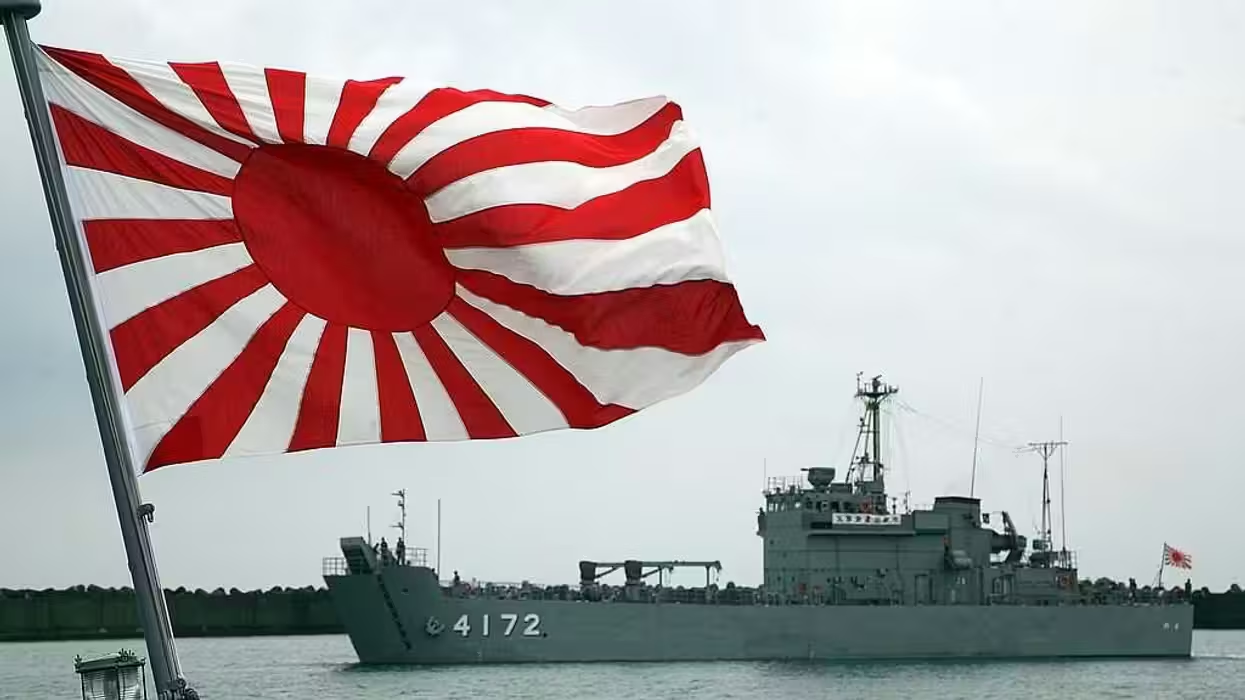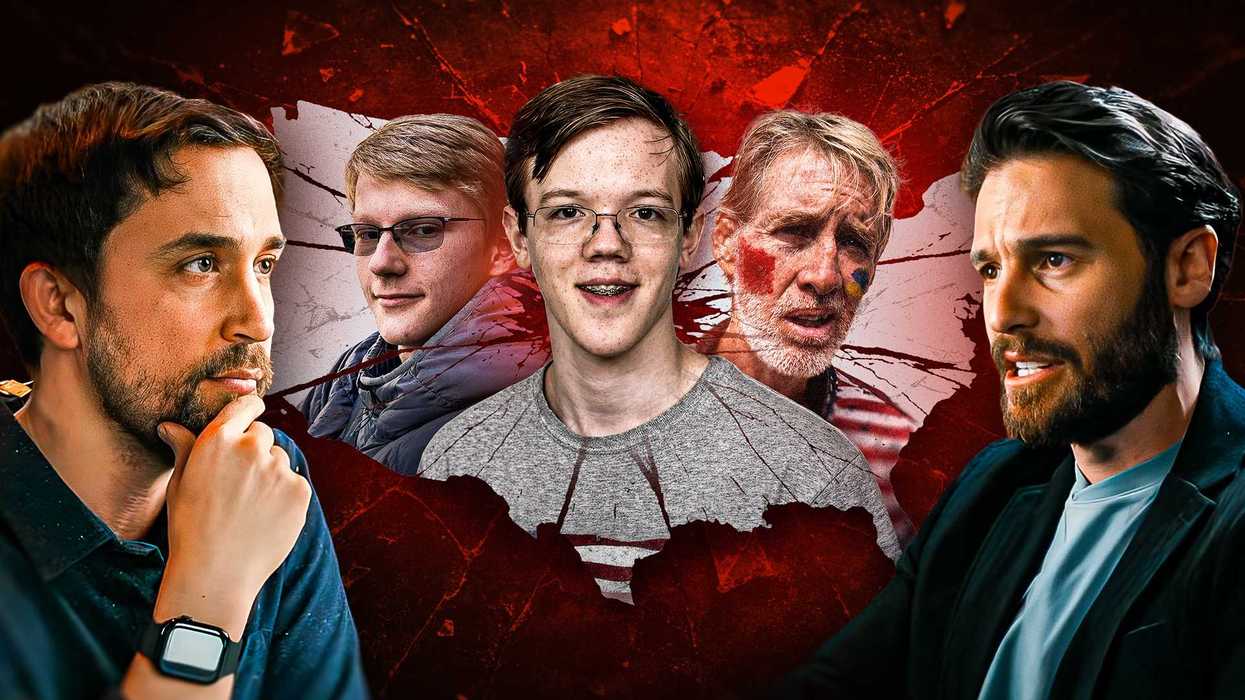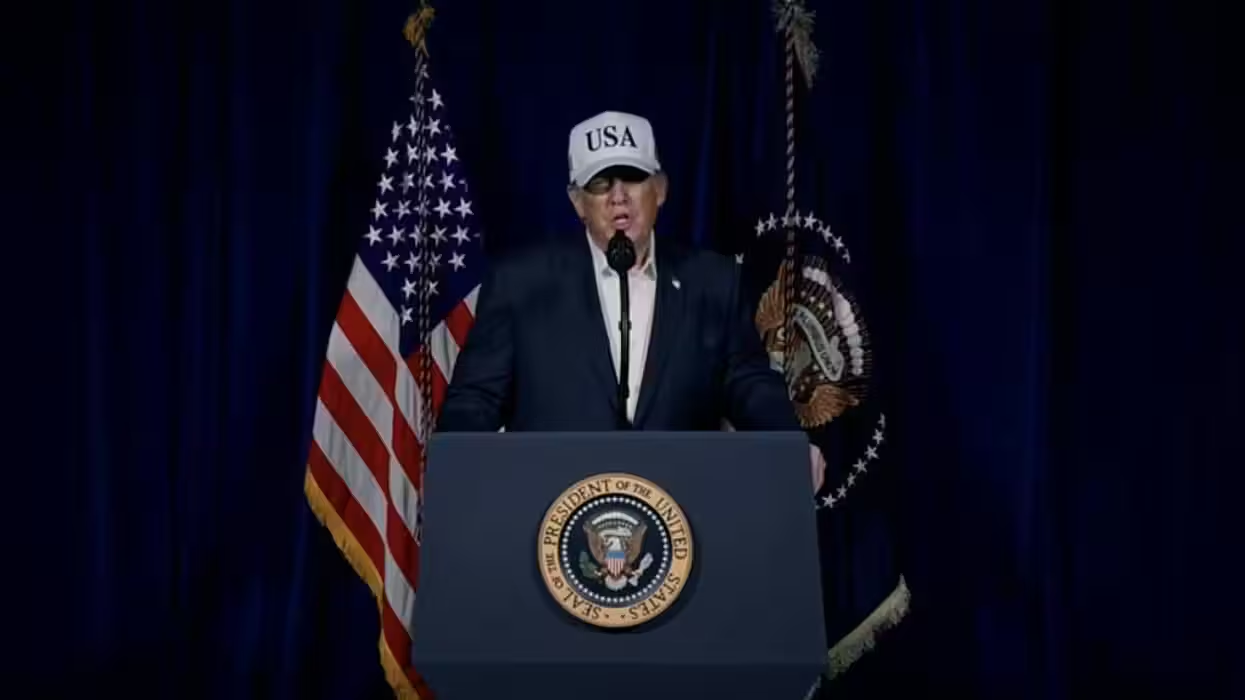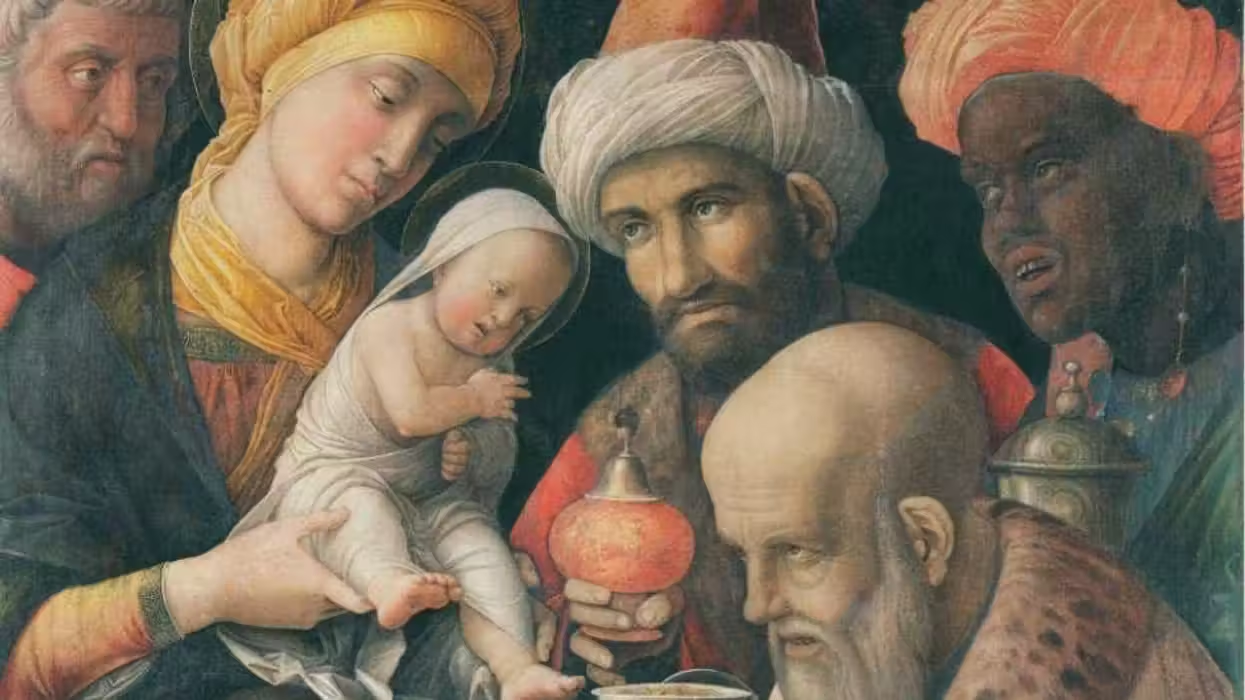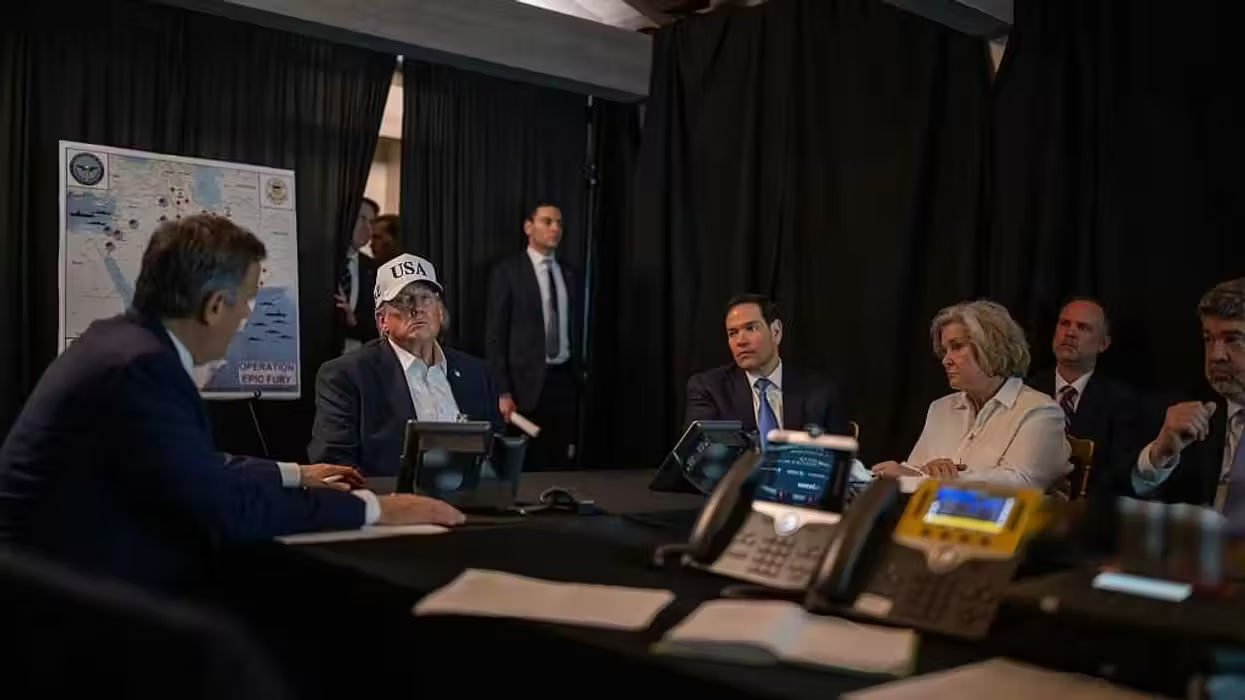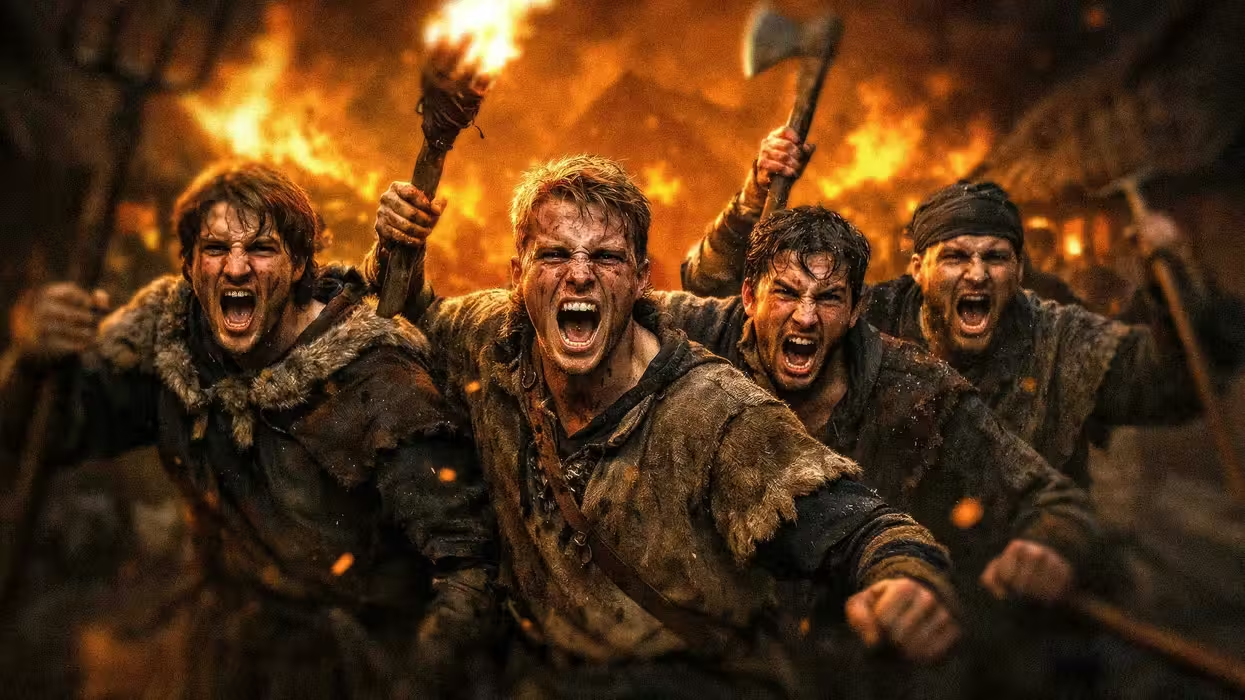Dmytro Lysak was one of the legions of Ukrainian protesters beaten by riot police in Kiev during bloody uprisings last month. But he says his bruises were a small price to pay for the future of Ukraine "or for that matter, the rest of the world."
Now Lysak, like millions of other Ukrainians, wonders if the United States is strong enough to stand up to Russian President Vladimir Putin and his military incursion into Crimea. Lysak said current sanctions proposed by the West don't seem to be deterring Putin, whom he called a "madman."
 Ukrainian soldiers take part in a military drill not far from the small city of Goncharovskoye, some 150 kilometers from Kiev, March 14, 2014. (AFP/Getty Images/Sergei Supinsky)
Ukrainian soldiers take part in a military drill not far from the small city of Goncharovskoye, some 150 kilometers from Kiev, March 14, 2014. (AFP/Getty Images/Sergei Supinsky)
Lysak lives just outside Kiev and works as a translator and historian. He told TheBlaze Wednesday, "the U.S. could take steps to really cut [Putin] off, but it seems your government does not want any risk at all … this will cause huge losses in future."
[sharequote align="center"]We will know, and all the world will know, what your word is worth." [/sharequote]
"We will know, and all the world will know, what your word is worth," he said, referring to the 1994 Budapest Memorandum on Security Assurances, in which Russia, the U.S. and the U.K. agreed to respect Ukraine's sovereignty and borders in return for Ukraine giving up its nuclear weapons stockpile.
On Wednesday, The Blaze TV's For The Record episode, "Resistance" will tell stories from the heart of Ukraine. Lysak and others will reveal the firsthand accounts of the deadly violence that has gripped their nation and an uncertain future. For The Record will also reveal the threat posed by Russia's takeover of Crimea and how their endgame could directly target America.
After an eyebrow-raising 97 percent of Crimea was said to have approved a referendum to leave Ukraine and rejoin Russia, the White House said the U.S. would not recognize the vote, and called the entire situation a land grab by Russia. The U.S. imposed financial sanctions on a number of Russian oligarchs and politicians close to Putin.
Some experts say the sanctions are not enough to stop Russia.
Alex Kuzma, chief development officer with the nonprofit Ukrainian Catholic Education Foundation and who frequently visits the region, said it is time for people to know the truth about Ukraine. He said the most of the media are perpetuating Putin's disinformation campaign that the Crimean people called for Russia's protection, and called the 97 percent win in Sunday's referendum, "laughable by anyone's account," even though Russia enjoys support in the region.
[mlbvideo content_id="31577275"]
Kuzma said Russian involvement in Crimea has been contemptuous and that everyone in eastern Ukraine remembers how Soviet Union leader Josef Stalin starved more than 7.5 million eastern Ukrainians in the early 1930s.
Stalin then "deported millions more to Siberia, and repopulated their villages with ethnic Russians," Kuzma said.
"Why do Western pundits ignore the fact that Ukraine’s eastern provinces also voted resoundingly for Ukrainian independence in 1991?" said Kuzma, referring to the Crimean vote to remain a part of Ukraine after the collapse of the Soviet Union. "They may not have voted by the enormous 92 percent margins of some western Ukrainian regions. But since when does 60 percent not qualify as a clear majority? And since when does ethnic cleansing and armed coercion give an invader a superior claim to the express will of the local people?"
In recent months, pro-Ukrainian demonstrations in cities like Dnipropetrovsk and Donetsk drew tens of thousands of demonstrators. Although the turnouts were smaller turnout than the demonstrations in Kiev's Independence Square, Kuzma said it's not unusual for regional “satellite” rallies to be smaller.
"The pro-democracy demonstrators in the east were certainly far more numerous than the few hundred who were bused in and mostly paid by oligarchs, to show their fondness for Russia," he said.
—
You can follow Sara A. Carter (@SaraCarterDC) on Twitter
—
Programming note: For more on this story, tune in Wednesday to TheBlaze TV’s For The Record and watch the new episode, “Resistance,” about the crisis in Ukraine (8 p.m. ET).

 Ukrainian soldiers take part in a military drill not far from the small city of Goncharovskoye, some 150 kilometers from Kiev, March 14, 2014. (AFP/Getty Images/Sergei Supinsky)
Ukrainian soldiers take part in a military drill not far from the small city of Goncharovskoye, some 150 kilometers from Kiev, March 14, 2014. (AFP/Getty Images/Sergei Supinsky)

